ZMINA raises awareness of human rights defenders about EU standards: training in Kyiv
On 22 January 2025, Kyiv hosted a training on “European Integration of Ukraine: Adaptation of Legislation and Protection of Human Rights”, organised by the Human Rights Centre ZMINA with the support of the European Union and the International Renaissance Foundation within the framework of the joint initiative “European Renaissance of Ukraine”.
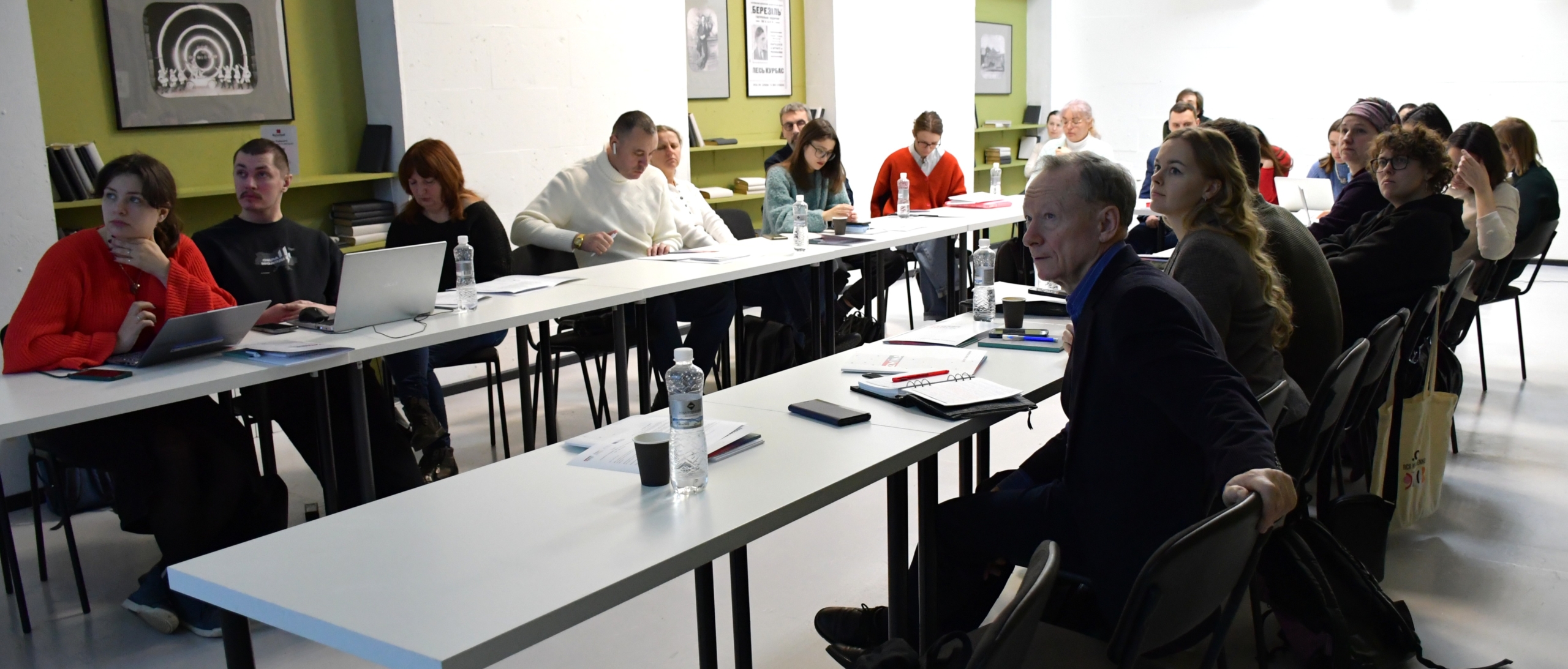
The event, which included lectures and practical exercises, was intended to raise participants’ awareness and competence in the issues of European integration in Ukraine. Representatives of NGOs and experts working in the field of human rights protection, advocacy and monitoring attended.
During the training, all participants were acquainted with the stages of European integration and key EU directives and regulations regarding human rights protection.
Expert on European integration Bohdan Veselovskyi spoke about the history of EU-Ukraine relations, the Association Agreement and the negotiation process for Ukraine’s membership in the EU. He also shared his forecasts on the time needed for Ukraine’s accession to the EU.
“After the war is over, Ukraine will need 7 to 15 years to fulfil all the requirements of the EU and become a full member. The main task today is not to lose the pace of reforms and ensure the sustainability of changes,” Veselovskyi said.
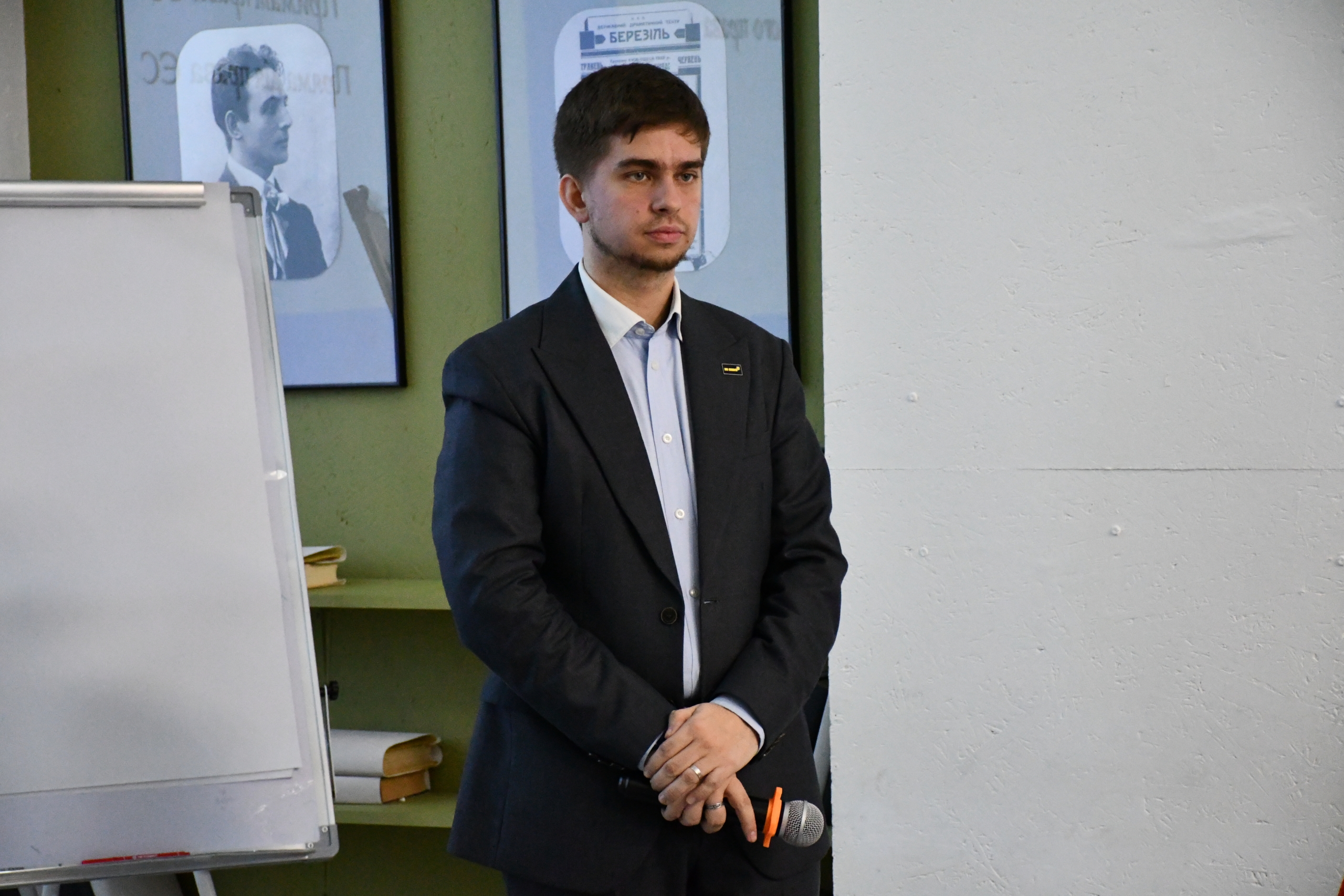 Bohdan Veselovskyi
Bohdan VeselovskyiDr. John Morijn, Lead Legal Expert of the 3*E4U project, explained how European human rights standards differ from the approaches of the Council of Europe and the United Nations. In addition, he focused on the specifics of the European Union Agency for Fundamental Rights (FRA).
“European human rights standards are primarily about mechanisms for their protection. Abandoning declarative language and moving to real action should be at the core of reforming Ukrainian legislation,” said Dr. John Morijn.
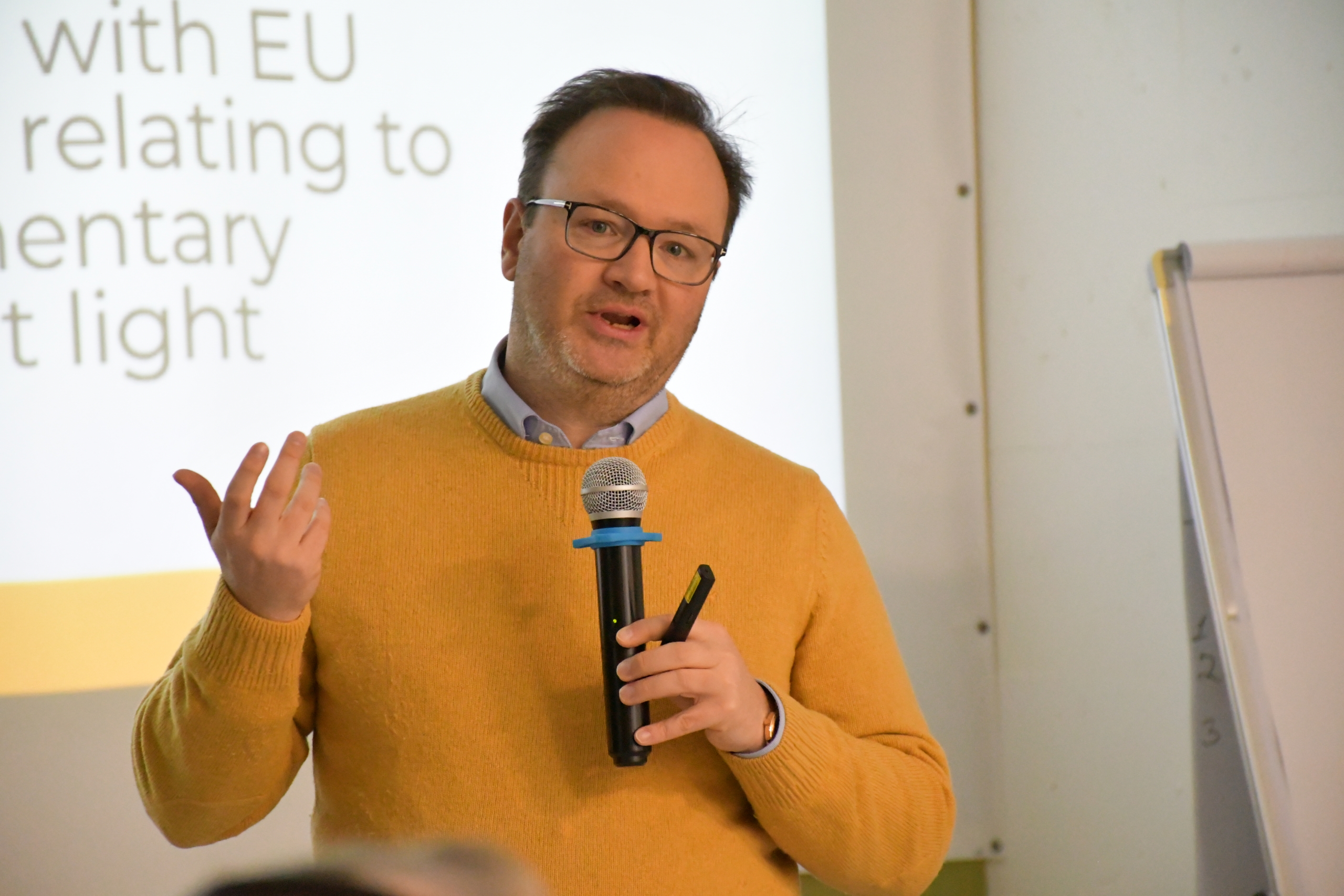 Dr. John Morijn
Dr. John MorijnThe participants also discussed the role of civil society in the process of European integration and the importance of working on independent analytical documents, such as the Shadow Report prepared by a coalition of NGOs led by the Agency for Legislative Initiatives, in which ZMINA prepared a section on “Protection of Fundamental Rights and Freedoms”.
“The Shadow Report prepared by Ukrainian human rights defenders has become an important tool to demonstrate the real state of human rights in Ukraine. This data helps not only the government, but also international partners to understand our challenges and achievements better,” said Dr. John Morijn.
He also added that civil society plays a key role in monitoring, advocating and ensuring transparency of reforms.
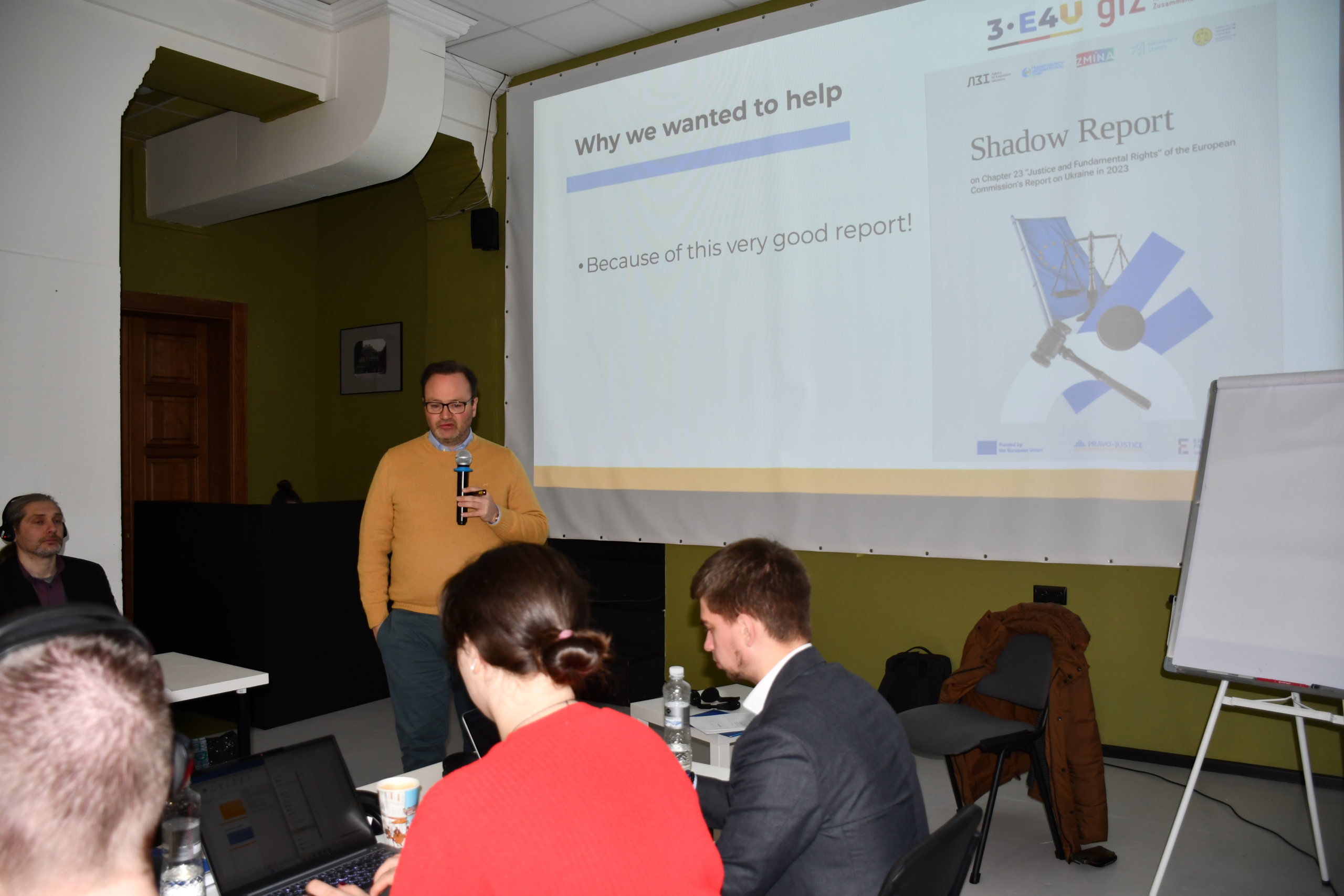
This training was another step towards accelerating the European integration process of Ukraine by strengthening the role of civil society. It contributed to raising the level of knowledge among human rights organisations that directly influence legislative changes in the country.
“Human rights is the criterion by which a country’s readiness for EU membership is assessed. Our task is to help Ukraine meet these criteria not only on paper, but also in real life,” said Tetiana Pechonchyk, Head of the Board of the Human Rights Centre ZMINA.
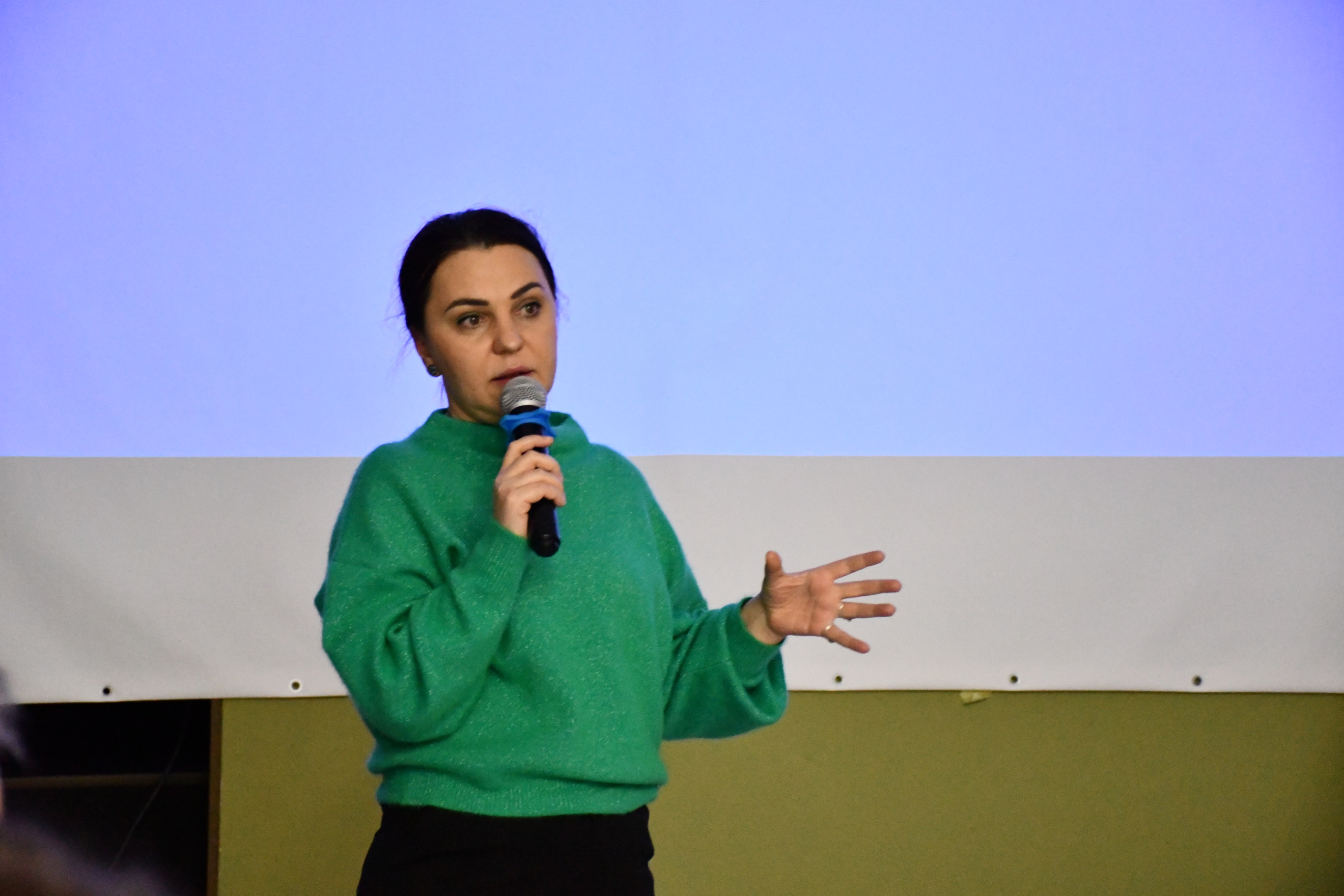 Tetiana Pechonchyk
Tetiana Pechonchyk
If you have found a spelling error, please, notify us by selecting that text and pressing Ctrl+Enter.















